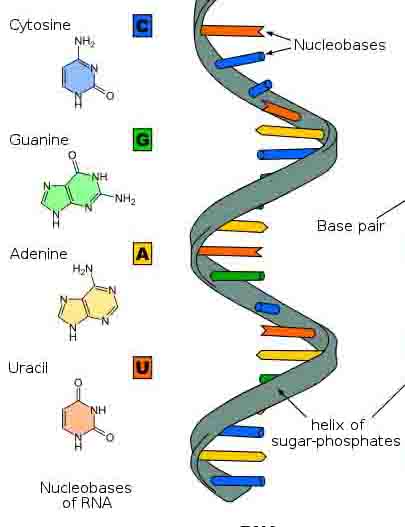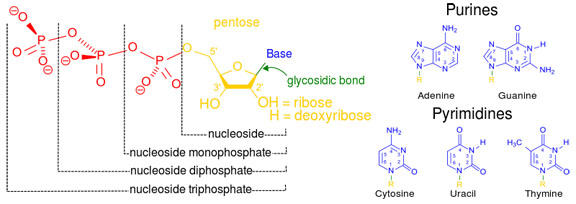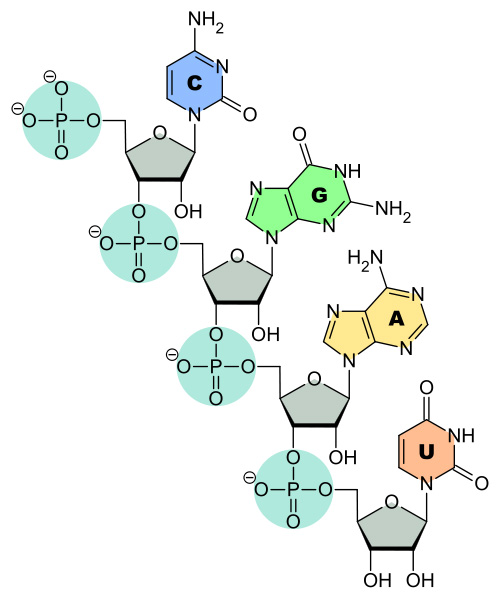 | ||||
Ribonucleic Acid (RNA) Structure & Function
CLASS NOTES from Science Prof Online
RNA and DNA are nucleic acids, made of similar units called nucleotides. Each nucleotide has 3 main parts:
- a pentose sugar called ribose
- one or more phosphate groups
- one of five cyclic nitrogenous bases
Article Summary: Ribonucleic acid (RNA) functions as genetic messengers and builders of the cellular world. Here are the basics on this important biomolecule.
What Is RNA and What Does It Do?
Page last updated: 6/2015
Three Types of RNA
Genetic information copied from DNA is used to build three types of RNA:
- Ribosomal RNA (rRNA)
- Messenger RNA (mRNA)
- Transfer RNA (tRNA)
Ribosomal RNA - The Protein Factories: Most of the RNA in cells is part of the structure of small cellular organelles known as ribosomes, the protein factories of the cells.
Messenger RNA - The Genetic Blueprint: Messenger RNA is a copy of the genetic information that was transcribed from the cell’s original blueprint, DNA. This copy of the genetic information is brought to the ribosome and used as instructions for building proteins.
Transfer RNA - The Amino Acid Suppliers: Transfer RNA is also part of the process of building proteins. Like a little truck, tRNA brings the amino acid to the ribosome. Which amino acid it brings depends on which was coded for in the mRNA instructions. At the ribosome, these amino acids are joined together to form proteins.
What Does RNA Do?
You have free access to a large collection of materials used in a college-level introductory Cell Biology Course. The Virtual Cell Biology Classroom provides a wide range of free educational resources including Power Point Lectures, Study Guides, Review Questions and Practice Test Questions.
 | ||||||
SPO VIRTUAL CLASSROOMS
The nucleotides of nucleic acids are linked together by covalent bonds between phosphate of one nucleotide and sugar of next. These linked monomers become the phosphate-sugar backbone of ribonucleic acids, and nitrogenous bases extend from this phosphate-sugar backbone like teeth of a comb. In living organisms, RNA is a single stranded molecule, unlike DNA, which is double-stranded. In viruses, non-living infectious particles, RNA can be single or double stranded.
The SPO website is best viewed in Microsoft Explorer, Google Chrome or Apple Safari.
Continued ... Go to PAGE 2 >
See Page 2 for homework assignment and other free teaching materials on Molecular Genetics!




